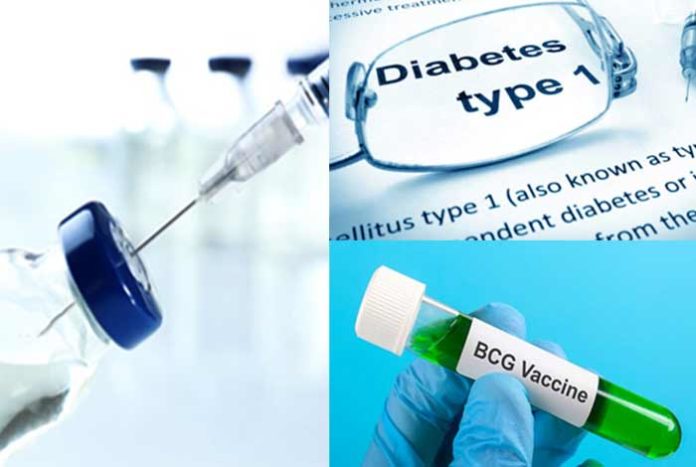
Unable to produce insulin, type 1 diabetics make up around 20 to 40 million people all over the world. The common form is type 2 which may occur due to poor lifestyle choices and it affects around 400 million people. The incidence of diabetes has quadrupled in the last 40 years.According to a new study, two injections of BCG vaccine can reduce type 1 diabetes to infinitesimally low levels
Research has found that a dose of BCG vaccine and a booster shot after a month decreased the level of blood sugar in some patients to normal in a time period of three years. Further the effects stayed for five more years and this result could lead to a significant advancement in the field of treating type 1 diabetes.
It was found by researchers that there was a considerable reduction in HbA1c, marker of blood sugar which is used for diagnosing diabetes. All recruits who had diabetes and received the vaccine showed 10% reduction after 3 years and 18% after four years. Subjects who got a placebo or followed general diabetic management had their blood sugar rise by some percentage during the years the study was conducted. All recruits whether those who received the vaccine or placebo did not stop using insulin during the study.
According to an eight year old study published in NPJ vaccines [1] , tests were done on mice which showed that vaccine could also treat type 2 diabetes.
The director of the study, Dr. Denise Faustman said that it is beyond thought that you can interfere with immunotherapy 10 or 20 years out. This data is remarkable which shows durability for 8 years.
A reduction by 10% in Hb1Ac cuts down the risk of death by 21% and 37% for other complications like numbness in hands and feet, loss of vision etc.
The study examined only a small number of people: 52 in total having type 1 diabetes. Out of them 12 received injections, of whom 9 got vaccine and three were given placebo. All 52 participants were followed up for 5 years. And 3 of them who received the vaccine were studied for 8 years.
Medical personnel who were not involved in the study were skeptical about the results of the study due to its small size. This could have happened by chance as people could have been more compliant with their diet.
The study depended on bacillus Calmette-Guérin (BCG) vaccine which has been in use since 1921. It is not widely used in the U.S. Because the bacteria it protects against is not very common in the country.
Based on the tests on mice, researchers thought that vaccine would help regenerate pancreas, which would produce insulin. It has been written in the paper that WBC’s start metabolizing sugar in a more aggressive manner.
So there is clear understanding that BCG vaccine can make useful changes to the immune system and decrease blood sugar. Some more clinical trials are being conducted to see if the results are consistent.










